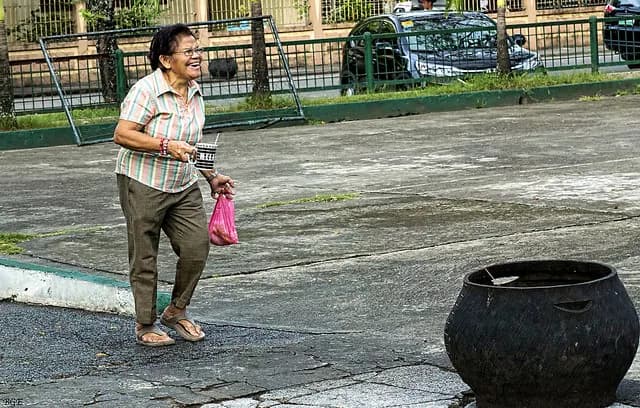
Older Obese Adults Can Benefit From Moderate Exercise
Moderate-intensity exercise can help even extremely obese older adults improve their ability to perform common daily activities and remain independent, according to researchers at Wake Forest Baptist Medical Center.
Findings from the National Institutes of Health-funded study are published in the July issue of the journal Obesity.
In the United States, obesity affects nearly 13 million adults age 65 and older. Both overall obesity and abdominal obesity are strongly associated with the development of major mobility disability (MMD), the inability to walk a quarter of a mile, according to the study's lead author, Stephen Kritchevsky, Ph.D., director of the Sticht Center for Healthy Aging and Alzheimer's Prevention at Wake Forest Baptist.
Previous data on older populations had suggested that obesity may lessen the beneficial effects of physical activity on mobility. However, this research, which analyzed data from the multicenter Lifestyle Interventions and Independence for Elders (LIFE) study, showed that a structured physical activity program reduced the risk of MMD even in older adults with extreme obesity.
"The inability to walk a quarter of a mile is a proxy for common daily activities, such as the inability to walk a block around the neighborhood or to walk several street blocks to go to a store," Kritchevsky said. "Having a major mobility disorder can really affect the quality of life and independence for older people, but we showed that moderate exercise was a safe and effective way to reduce that risk even in severely obese people."
The LIFE study was a large clinical trial that enrolled 1,635 sedentary men and women age 70 to 89. The participants were randomized to a moderate intensity physical activity program or a health education program to test if the physical activity program would reduce the rate of MMD compared to the education program. Major mobility disability was defined as the inability to walk 400 meters (about a quarter of a mile) without sitting and without help from another person or a walker, Kritchevsky said.
Participants were divided into four groups according to body mass index (BMI) -- a measure of body fat based on height and weight -- and waist circumference: non-obese with BMI less than 30; non-obese with high waist circumference of more than 40 inches for men and 34 inches for women; class 1 obese with BMI between 30 and 35; and class 2 obese with BMI of 35 or higher.
The physical activity program focused on walking, strength, balance and flexibility training. The goal for participants was to be able to walk at moderate intensity for 30 minutes and perform 10 minutes of lower-extremity strength training with ankle weights and 10 minutes of balance training in a single session. Participants attended two center-based training sessions per week and performed at-home activities three to four times per week during the two-year study.
The health education program involved in-person group workshops focused on aging-relevant topics such as nutrition, safety and legal/financial issues. Sessions included lectures and interactive discussions and five to 10 minutes of upper body stretching exercises.
While there was no significant difference between obesity category and intervention effect, those in the class 2 obesity group showed the greatest benefit from the physical activity program, reducing their risk of MDD by 31 percent, Kritchevsky said.
Materials provided by Wake Forest Baptist Medical Center. Note: Content may be edited for style and length.
Disclaimer: DoveMed is not responsible for the accuracy of the adapted version of news releases posted to DoveMed by contributing universities and institutions.
Primary Resource:
Kritchevsky, S. B., Lovato, L., Handing, E. P., Blair, S., Botoseneanu, A., Guralnik, J. M., ... & Rejeski, W. J. (2017). Exercise's effect on mobility disability in older adults with and without obesity: The LIFE study randomized clinical trial. Obesity, 25(7), 1199-1205. DOI: 10.1002/oby.21860
Related Articles
Test Your Knowledge
Asked by users
Related Centers
Related Specialties
Related Physicians
Related Procedures
Related Resources
Join DoveHubs
and connect with fellow professionals

0 Comments
Please log in to post a comment.